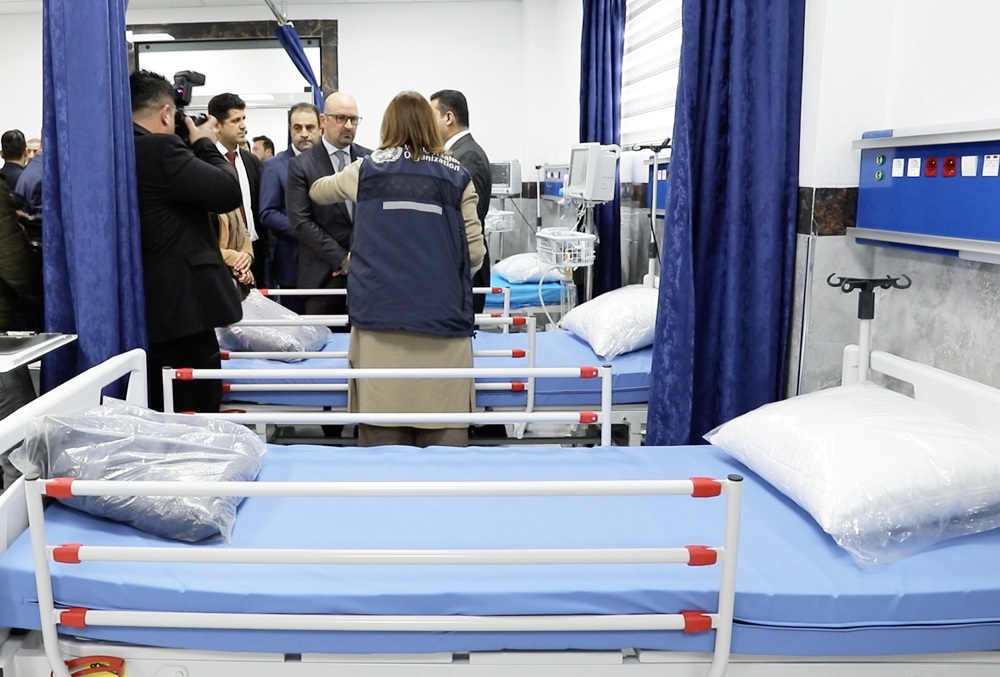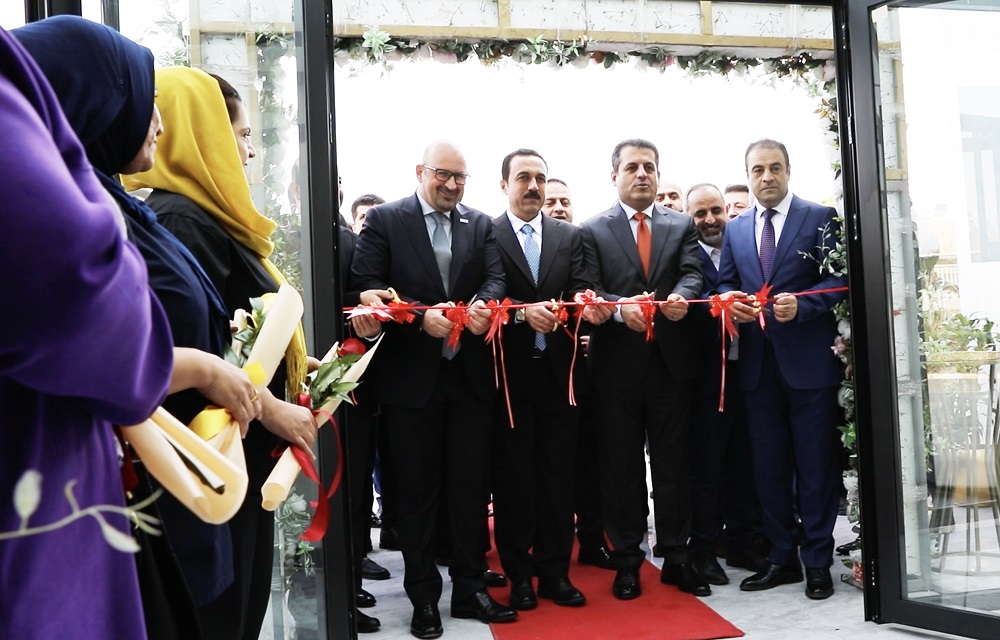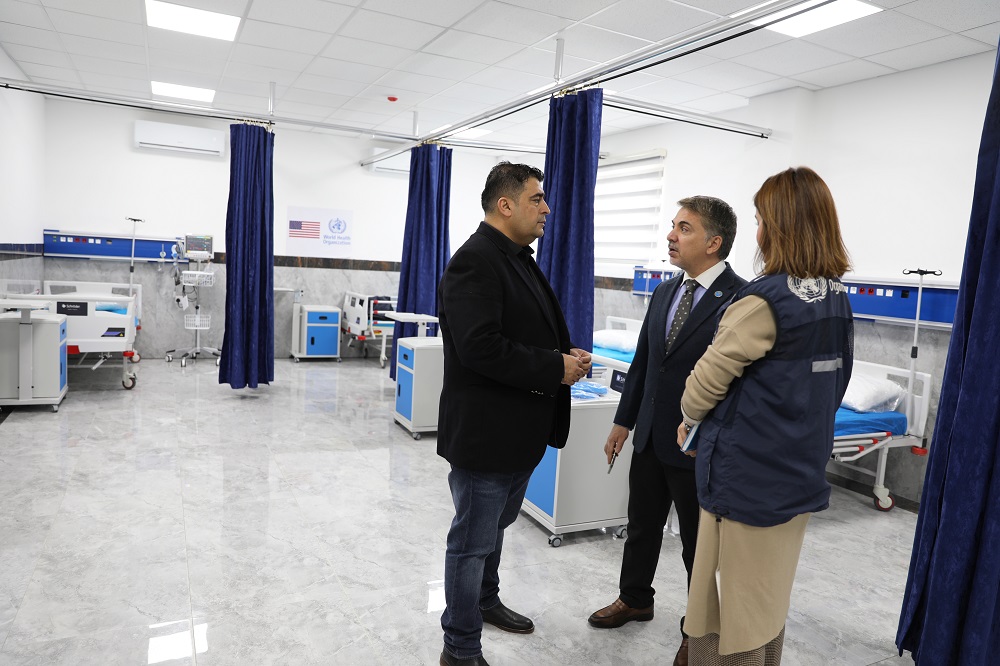 The newly established triage will serve a large segment of the population in Erbil, including about 130 000 Syrian refugees and over 240 000 IDPs
The newly established triage will serve a large segment of the population in Erbil, including about 130 000 Syrian refugees and over 240 000 IDPs
Erbil, 20 December 2022 – The World Health Organization (WHO), in collaboration with the Ministry of Health in Kurdistan of Iraq, inaugurated on 15 December a triage unit in East Erbil Emergency Hospital, the main facility for treating all types of casualties in Erbil governorate.
The inauguration, which aligns with the Organization’s efforts to advance universal health coverage (UHC), is a milestone in delivering specialized emergency health care services to a large segment of the population in Erbil, including about 130 000 Syrian refugees and over 240 000 internally displaced persons (IDPs).
 The WHO Representative in Iraq and the Minister of Health in the Kurdistan Region of Iraq inaugurate the triage unit in East Erbil Emergency Hospital“Achieving UHC is also about providing time-sensitive and equitable access to quality emergency treatment in order to save the lives of victims of traffic accidents and other emergencies,” said Dr Ahmed Zouiten, WHO Representative in Iraq. “The opening of this essential unit will shorten the waiting time in the emergency department and will prioritize critical cases requiring stabilization and medical or surgical interventions.”
The WHO Representative in Iraq and the Minister of Health in the Kurdistan Region of Iraq inaugurate the triage unit in East Erbil Emergency Hospital“Achieving UHC is also about providing time-sensitive and equitable access to quality emergency treatment in order to save the lives of victims of traffic accidents and other emergencies,” said Dr Ahmed Zouiten, WHO Representative in Iraq. “The opening of this essential unit will shorten the waiting time in the emergency department and will prioritize critical cases requiring stabilization and medical or surgical interventions.”
The newly established triage unit provides 2 male-female inpatient rooms of 6 beds, each dedicated to critical medical cases, and a reception area with 3 medical doctors to manage patient screening. The unit is also supported by a 6-bed trauma ward, a mortuary, and registry and statistics areas.
A capacity-building programme for 20 medical and health workers on using WHO's emergency care toolkit was also provided to boost the quality of treatment of patients, especially during mass casualties.
The new triage unit is supported by a reception area with three medical doctors, a six-bed trauma ward, a mortuary, and registry and statistics areasThe 35-bed hospital receives a daily rate of 600 to 700 accidents and medical emergencies and runs a minimum daily average of 30 to 40 surgeries. Around 15–20% of cases admitted are for Syrian refugees working in delivery jobs with no capacity to afford the cost of urgent medical treatment.
 The new triage unit is supported by a reception area with 3 medical doctors, a 6-bed trauma ward, a mortuary, and registry and statistics areas.
The new triage unit is supported by a reception area with 3 medical doctors, a 6-bed trauma ward, a mortuary, and registry and statistics areas.
The generous contribution of donors and partners like the Department of State's Bureau for Population, Refugees, and Migrants has enabled WHO to implement this lifesaving project and help in the earliest assessment of patients to determine the urgency and type of treatment required.
For more info, pls contact:
Ajyal Sultany
WHO communications Officer
+9647740892878
This e-mail address is being protected from spambots. You need JavaScript enabled to view it




